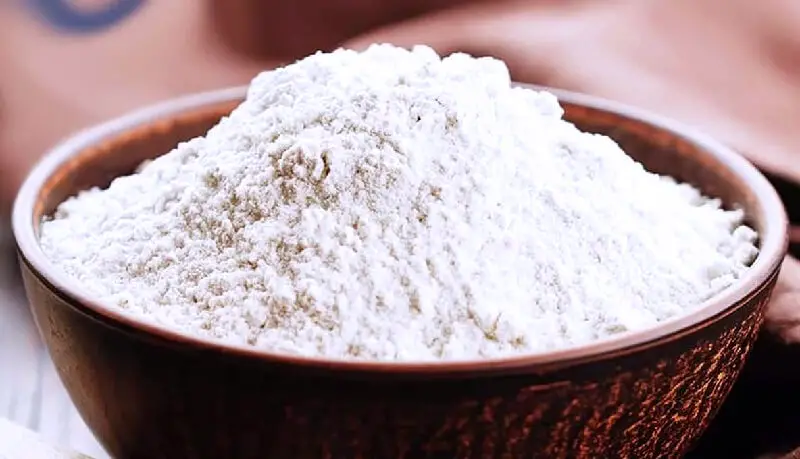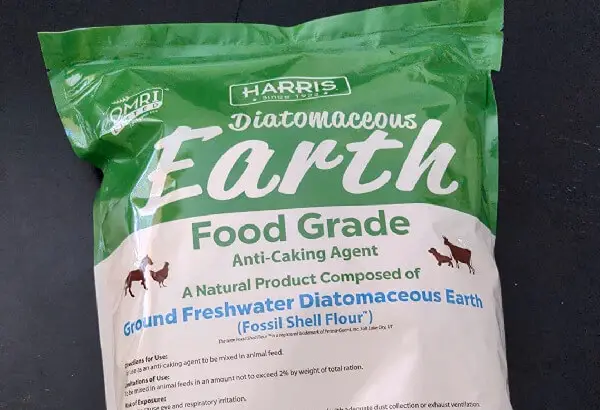Diatomaceous Earth Insecticide

Whether we talk about homes, gardens, or agricultural fields, hunting for safe and efficient ways to control them never stops. One solution derived from nature itself is diatomaceous earth (DE).
With a growing focus on natural and organic methods of pest control, DE has risen in popularity. If you’re exploring natural ways to get rid of pests, this review of diatomaceous earth insecticide will be a valuable guide.
Diatomaceous Earth Insecticide
| Feature | Detail |
|---|---|
| Nature | Natural |
| Active Ingredient | Fossilized remains of diatoms |
| Mode of Action | Mechanical (Dehydration of pests) |
| Target Pests | Bed bugs, fleas, ants, cockroaches, etc. |
| Safety for Humans/Pets | Generally safe (use food-grade DE) |
| Environmental Impact | Eco-friendly, biodegradable |
| Cost | Affordable |
| Application Conditions | Dry |
| Possible Side Effects | Irritation if inhaled, harm to beneficial insects |
What is Diatomaceous Earth?
Diatomaceous earth is a naturally occurring, soft sedimentary rock quickly crumbles into a white to off-white powder. It comprises fossilized remains of diatoms, a type of hard-shelled algae.
When looked under a microscope, these particles appear incredibly sharp. It’s this characteristic that makes D.E. an effective insecticide.

How Does Diatomaceous Earth Work as an Insecticide?
The mode of action of D.E. is mechanical. Its sharp microscopic edges pierce the exoskeletons of insects, leading to the loss of lipids and body fluids. Essentially, it causes them to dehydrate and die.
Unlike chemical insecticides that target the nervous system of pests, D.E.’s action is physical, reducing the chances of pests developing resistance.
Advantages of D.E. Insecticide
- Eco-Friendly: D.E. is non-toxic to the environment, making it a sustainable choice for pest control.
- Non-Toxic to Humans and Pets: When sourced as food-grade, D.E. is safe for household use and doesn’t harm pets.
- Cost-Effective: D.E. is relatively inexpensive compared to chemical alternatives, offering an economical solution for long-term use.
- Broad-Spectrum: Effective against a wide range of pests, including bed bugs, cockroaches, ants, and garden pests.
- No Resistance: Since DE’s action is mechanical, there’s no chance for pests to develop resistance over time.
- Residual Effect: Once applied, D.E. provides long-lasting protection as it doesn’t evaporate or get easily washed away.
Drawbacks
- Limited to Dry Conditions: D.E. loses its effectiveness when wet. Dry conditions are required for it to work efficiently.
- May Harm Beneficial Insects: While DE targets pests, it might also affect beneficial insects like bees and ladybugs if they come in contact.
- Requires Reapplication: To maintain its effectiveness, especially in high traffic areas or after rains, reapplication is necessary.

How to Use Diatomaceous Earth (D.E.)
Selecting the correct grade is imperative to harness the full potential of Diatomaceous Earth for pest control. Always choose food-grade D.E. when targeting household and garden pests, as this ensures safety for humans and pets alike.
For application, sprinkling a delicate layer of D.E. onto areas where pests are known to frequent is best. If you’re using D.E. in a garden setting, consider dusting it directly onto the plants, with special attention to the junctures between stems and leaves. This placement can deter pests from infesting these crucial plant areas.
Bear in mind that the effectiveness of D.E. can diminish after rain or watering, so reapplication is essential to sustain its potency. Even though D.E. is non-toxic, it’s worth noting that it can act as an irritant. As a precaution, wearing a mask can prevent inhalation, and goggles can shield the eyes from potential irritation during the application process.
Does Diatomaceous Earth Work After It Gets Wet?
Diatomaceous earth does not work while it is wet, but it will regain its effectiveness once it dries out. Wet diatomaceous earth will lose its sharpness and potency, making it less effective against pests.
Still, for maximum impact against garden pests, DE must always be reapplied after it gets wet.
Can You Sleep in a Room With Diatomaceous Earth?
Yes, sleeping in a room with diatomaceous earth applied is safe but not recommended. Because Diatomaceous earth is a fine powder that can irritate the lungs, eyes, and nose membrane if inhaled in large amounts.
If DE is applied to a mattress, it should be covered with a clean mattress protector and cover to prevent direct contact with the skin. It is also recommended to wait for at least 3 days before vacuuming up the DE.
Is Diatomaceous Earth Safe for Dogs and Cats?
Diatomaceous earth is safe for dogs and cats when used correctly. Food-grade diatomaceous earth is non-toxic to pets. It is a natural, non-toxic, chemical-free, and safe way to keep your cat or dog internally and externally free of parasites.
Will Diatomaceous Earth Kill the Queen Ant?
Yes, diatomaceous earth will kill the queen ant, but it may take longer than the worker ant. The primary goal of using diatomaceous earth is to disrupt the ant colony’s functioning by targeting the workers who are responsible for foraging and maintaining the colony.
By eliminating the workers, the colony’s food supply and overall stability are compromised, which can eventually lead to the queen’s death.
Can Diatomaceous Earth Be Mixed With Water?
Yes, diatomaceous earth can be mixed with water and sprayed on plants and other surfaces. Wet diatomaceous earth will stick to the plants and become effective once it dries out.
It is also possible to mix diatomaceous earth with water and spray it as a spray, which is the easiest way to adhere DE to hard-to-reach areas of plants, like underneath leaves and on branches.
However, it is essential to note that the food-grade diatomaceous earth label does not give instructions for mixing with water, so it is best to check the label of your specific brand to see if it recommends applying DE in this fashion.
Conclusion
Diatomaceous Earth emerges as a compelling alternative to traditional chemical insecticides. Its advantages of safety, efficacy, and low environmental impact make it a holistic choice for integrated pest management. While it does come with limitations like ineffectiveness in wet conditions, its pros significantly outweigh its cons.
By embracing D.E. as a viable option, not only can we control pests effectively, but we can do so in a manner aligned with a sustainable and health-conscious lifestyle. And given its cost-effectiveness, D.E. offers a proactive, long-term solution that anyone can adopt.
If you’re in the market for an insecticide that is both effective and ecologically sound, Diatomaceous Earth deserves a spot in your pest control arsenal.

James E. Butkovich, Pest control maven with a knack for eco-friendly & Chemical solutions. Blogger with a mission to make homes pest-free, one post at a time.